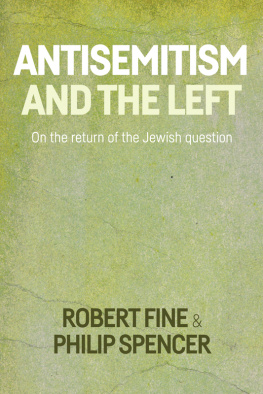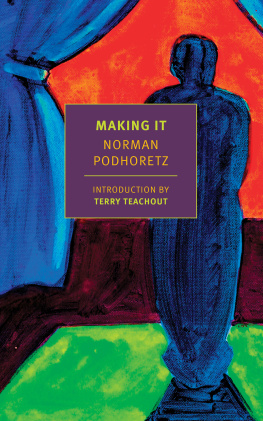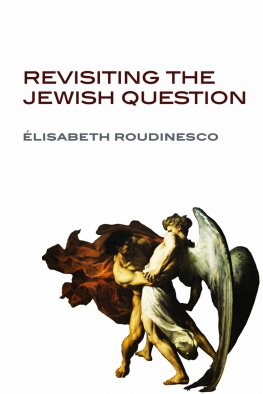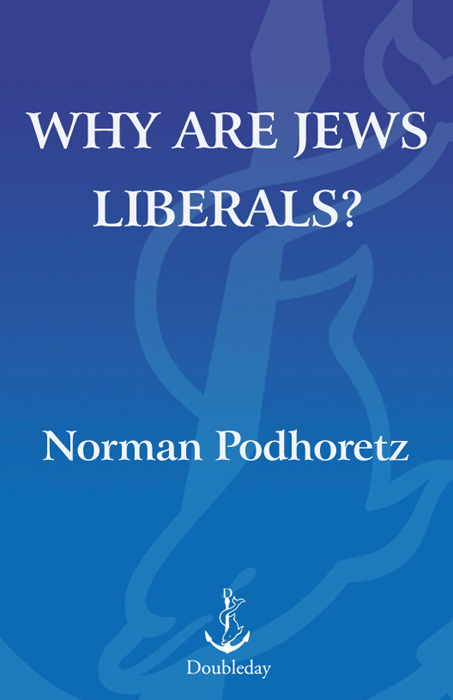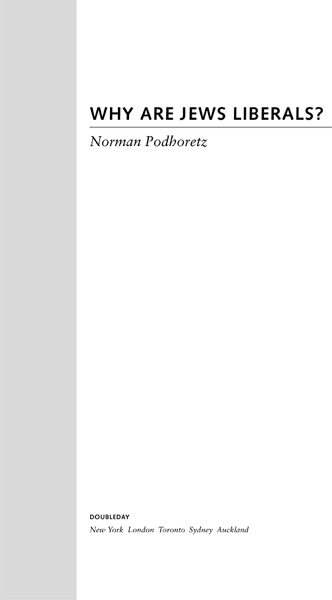17.
INTRODUCTION
A nyone who pays any attention at all to American politics is sure to know that most American Jews are liberals and is also very likely to recognize that there is something anomalous about the fact that they still are. Milton Himmelfarb, who for many years headed the Information and Research Service of the American Jewish Committee, put the anomaly best in a brilliant and deservedly famous epigram: Jews earn like Episcopalians and vote like Puerto Ricans. The Episcopalians may no longer be the richest group in America or Puerto Ricans the poorest, but the implication of the point still holds. Here is how it is spelled out by Anna Greenberg and Kenneth D. Wald, two close students of the political culture of American Jews:
Jewish Americans do not exhibit the same political tendencies as other demographically equivalent groups. For instance, we might expect Jewish Americans to become more conservative in their beliefs and voting preferences as succeeding generations attain higher levels of affluence and education. In fact, Jewish Americans are among the most highly educated, professional, and affluent members of the population. But when we compare these Jewish American voters to non-Jews with the same socio-economic status, the Jews remain politically distinctive.
By politically distinctive Greenberg and Wald mean that
Jews are clearly on the Left of American politics in their partisan loyalties and voting preferences: they consistently support Democratic candidates and identify with the Democratic Party at considerably higher rates than non-Jews.
Especially, again, those non-Jews whom they resemble in socioeconomic status.
In short, Jewish political behavior continues to contradict many commonplace assumptions. If we go by the most commonplace of all these assumptionsthat people tend to vote their pocket bookswe are forced to conclude that in continuing to vote for the Democrats Jews have in the last few decades been voting against their own interests. Jewish conservatives, or neoconservatives, like me, see this as irrational, but Jewish liberals (which is to say most Jews) take pride in it as a mark of their refusal to put self-interest (which they equate with selfishness) above the demands of social justice.
Nor do they take pride only in where they stand on economic issues. Some three hundred years ago, surveying the political scene in the England of his day, Dr. Johnson maintained that it was only a very small part of all that human hearts endure that laws or kings [could] cause or cure. In the America of our day, however, it isor at least seems to bevery nearly the opposite. With us, government has become so intrusive that hardly anything escapes its influence. The practical result is that ideas and attitudes whose full range and depth are in reality beyond the reach of the ballot box nevertheless keep getting sucked into the political maw. In that realm, toothe realm that encompasses all the issues involved in what has become known as the culture warmost American Jews are with the Left and against the Right. Greenberg and Wald again:
Jews identify with groups in American politics traditionally found on the political Left. Jewish Americans support the womens movement more than non-Jews; Jews are also far more likely to call themselves prochoice than prolife. Jews do not support groups traditionally allied with the Republican Party such as the National Rifle Association and the religious Right.
To liberal Jews these positions are a mark of their attachment to yet another high idealin this case the ideal of tolerance. But whatever the merits of this claim (which is at the very least compromised by its intolerant exclusion of the Right, and the religious Right most of all), Jewish conservatives like me see nothing here that has much, if anything, to do with being Jewish. That is, we find no warrant either in the Jewish religion or in the socioeconomic condition of the American Jewish community for the stand most Jews continue to take on issues like those on the Greenberg-Wald list (to which I would add the gay rights movement).
As for the attitude of most of our fellow Jews toward the religious Right, it seems to us at least as irrational as the way they vote. Most Jews, including most Jewish liberals, care deeply about the security of Israel, and there is no group in America (not even the Jews themselves) that is more passionate in its support of Israel than the conservative Christian community. Yet instead of forging a political alliance with this community, Jewish liberals look for ways to justify their refusal to do so. At the same time, they are perfectly willing to make common cause with the mainline denominations, despite the fact that unfriendliness and even outright hostility to Israel have become pervasive in that sector of the Protestant world.
This attitude toward the conservative Christian community, however, is only one aspect of the largest sense in which the stubborn attachment of American Jews to the liberal community in general and the Democratic Party in particular runs counter to their interest as Jews. For in the last forty years or so, the Leftnot only in America but all over the world, and not only in the churches but in every institution it controlshas grown increasingly hostile to Israel, and this hostility has by now metastasized to the point where the difference between anti-Zionism and anti-Semitism has become almost invisible to the naked eye. Conversely, the Right, which was always more hospitable than the Left to anti-Jewish ideas and sentiments, has steadily been changing course. Anti-Semites of the traditional kind have become less and less welcome in the precincts of the Right, and so have anti-Zionists, whether they are, as they always claim, merely critics of Israeli policies, or whether, as is more often the case, they are (knowingly or not) drawing on ancient anti-Semitic canards in their attacks on Israel, or whether they are (knowingly) using anti-Zionism as a respectable cover for a new species of anti-Semitism.
At one time, it seemed reasonable to supposeand many did so suppose, some in hope and others in fearthat this reversal of roles would lead to a change in the political culture of American Jews. But it was not to be. No wonder, then, that non-Jewish conservatives are puzzledso puzzled that I cannot remember ever being asked any question as often as I have been asked why so many Jews continue clinging to the Left and why they still vote as heavily as ever for the Democratic Party. Usually I respond by saying that it is a very long and very complicated story. So it is, and I will now take a stab at telling it in the pages that follow.





